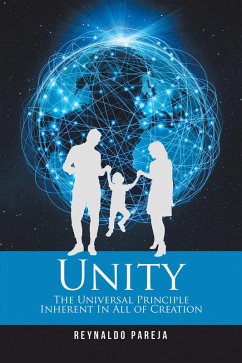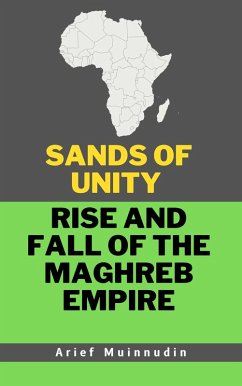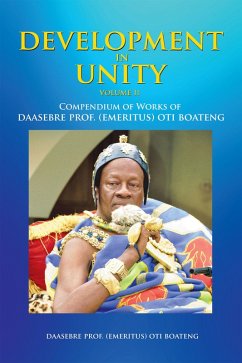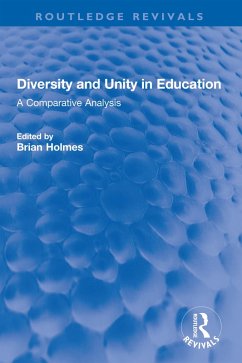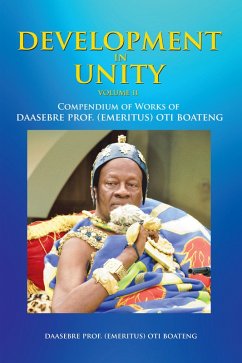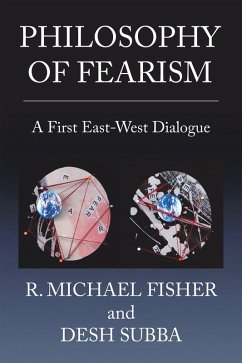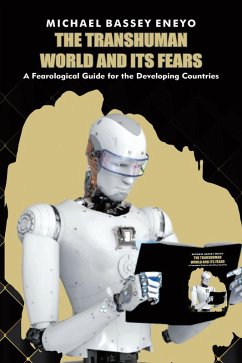
Philosophy of Unity (eBook, ePUB)
Love as an Ultimate Unifier

PAYBACK Punkte
1 °P sammeln!
This book is borne out of the author's desire to introduce Philosophy of Unity as one of the emerging philosophical paradigms tasked with the responsibility of offering practical ideas to contend with the alarming crisis, disunity, division, disassociation, war, terrorism, distrust and the general unrest that have engulfed the present human society. The author decries human disjointedness from the original purpose of love and the need for complementary living. Thus, attributing the challenges so experienced in the recent human tension-laden society to this negation.The book stands out as a por...
This book is borne out of the author's desire to introduce Philosophy of Unity as one of the emerging philosophical paradigms tasked with the responsibility of offering practical ideas to contend with the alarming crisis, disunity, division, disassociation, war, terrorism, distrust and the general unrest that have engulfed the present human society. The author decries human disjointedness from the original purpose of love and the need for complementary living. Thus, attributing the challenges so experienced in the recent human tension-laden society to this negation.
The book stands out as a portal of plethora of knowledge that unravels love as the ultimate unifier of the multiplicity of things in the universe, of which the unity and the separation of things in the world are necessitated by it. The author reasoned that, without love, the idea of the universe is inconceivable.
The principle of inclusiveness is adopted by the author to drive home the point that the warring opposites, the conflicting issues and the fragments characterizing the universe should not be taken as reasons for division and disunity. Rather, it should be seen as means through which human limitations can be overcome if these different entities are brought together for the overall good of human beings. Hence, all fragments and their opposites are necessary since it is by their existence that our individuals and collective essences are fully put to use.
The book is highly recommended for the general public, countries, especially those with multiple religions and ethnicities. It is very relevant to scholars in the areas of Philosophy, Religion, Political Science, Public and International Studies, Public Administration and Sociology. It is also useful to those who study or engage in conflict resolutions, especially in the crisis-prone communities. All lovers of wisdom will find the book useful in their respective areas of research.
The book stands out as a portal of plethora of knowledge that unravels love as the ultimate unifier of the multiplicity of things in the universe, of which the unity and the separation of things in the world are necessitated by it. The author reasoned that, without love, the idea of the universe is inconceivable.
The principle of inclusiveness is adopted by the author to drive home the point that the warring opposites, the conflicting issues and the fragments characterizing the universe should not be taken as reasons for division and disunity. Rather, it should be seen as means through which human limitations can be overcome if these different entities are brought together for the overall good of human beings. Hence, all fragments and their opposites are necessary since it is by their existence that our individuals and collective essences are fully put to use.
The book is highly recommended for the general public, countries, especially those with multiple religions and ethnicities. It is very relevant to scholars in the areas of Philosophy, Religion, Political Science, Public and International Studies, Public Administration and Sociology. It is also useful to those who study or engage in conflict resolutions, especially in the crisis-prone communities. All lovers of wisdom will find the book useful in their respective areas of research.
Dieser Download kann aus rechtlichen Gründen nur mit Rechnungsadresse in A, D ausgeliefert werden.




